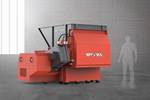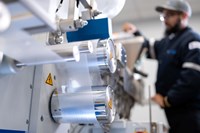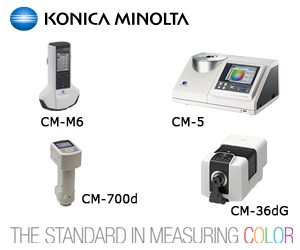Neste and Remondis Partner on Chemical Recycling
Neste will work with recycler Remondis to build an ecosystem around chemical recycling.
Neste, a provider of renewable diesel, renewable jet fuel, and Remondis, one of the world's largest privately owned recycling, service and water companies, have signed an agreement to collaborate in the development of chemical recycling of plastic waste. The companies will focus on developing and accelerating chemical recycling with a target to reach an annual capacity to process over 200 kilotons (200,000 tons) of waste plastic.
Through joining forces, Remondis and Neste combine Remondis’ waste collecting and sorting capabilities and Neste’s experience in oil refining and processing of low-quality waste and residue materials. The companies wish to build an ecosystem around chemical recycling to enable other companies in the value chain to join the initiative and complement mechanical recycling by closing the material circle also for those plastics that today are difficult or impossible to recycle.
Chemical recycling of plastics breaks down plastic waste into a raw material for the plastics and chemicals industries to use in the production of new high-quality plastics, chemicals and fuels.
“In order to establish chemical recycling of plastics at an industrial scale, it is necessary that the recycling industry and the chemical industry work closely together. The partnership between Remondis and Neste will focus on creating an optimal recycling process to make even more plastics circular,” says Jürgen Ephan, Managing Director, Remondis Recycling.
The cooperation between Remondis and Neste is a step towards innovation and investments that are necessary to prepare the recycling industry for the future.
“We are driven by our purpose of creating a healthier planet for our children. With Remondis among our sustainability-oriented value chain partners, we can build a chemical recycling solution to truly expand the possibilities of recycling those materials we cannot recycle today. Chemical recycling will enable us to circulate carbon in society over and over again and reduce crude oil dependence, which is one of Neste’s key targets as a sustainability leader in our industry. Collaboration between Remondis and Neste will bring us one step closer to fulfilling our commitment to process annually more than one million tons of waste plastic from 2030 onwards,'' says Mercedes Alonso, Executive Vice President, Renewable Polymers and Chemicals, Neste.
Other significant developments from Neste includes:
- Borealis aiming to produce renewable PP using Neste’s 100% renewable propane produced by Neste’s proprietary NEXBTL technology at its facilities in Kallo and Beringen, Belgium, starting by end of year.
- LyondellBasell Inc. (LBI) and Neste announced what is said to be the first parallel production of bio-based PP and bio-based LDPE at a commercial scale back in June.
Related Content
-
How to Extrusion Blow Mold PHA/PLA Blends
You need to pay attention to the inherent characteristics of biopolymers PHA/PLA materials when setting process parameters to realize better and more consistent outcomes.
-
A Recycling Plant, Renewed
Reinvention is essential at Capital Polymers, a toll recycler that has completely transformed its operation in a short period of time.
-
Recycling: What's Ahead in Advanced Sorting Technology
As the industry tries to ramp up recycling, there are several innovative sorting solutions in the offing—ranging from enhanced optical sorting technologies and chemical tracers to advanced solutions based digital watermarks and artificial intelligence.















